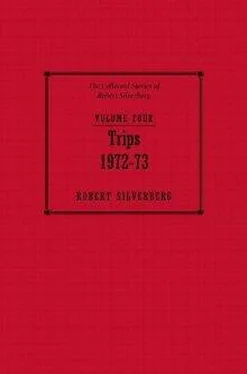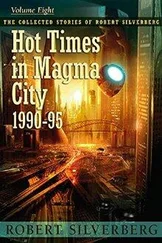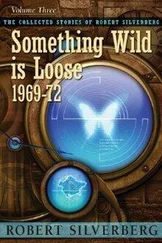Robert Silverberg - Born with the Dead
Здесь есть возможность читать онлайн «Robert Silverberg - Born with the Dead» весь текст электронной книги совершенно бесплатно (целиком полную версию без сокращений). В некоторых случаях можно слушать аудио, скачать через торрент в формате fb2 и присутствует краткое содержание. Год выпуска: 2009, ISBN: 2009, Издательство: Subterranean Press, Жанр: Фантастика и фэнтези, на английском языке. Описание произведения, (предисловие) а так же отзывы посетителей доступны на портале библиотеки ЛибКат.
- Название:Born with the Dead
- Автор:
- Издательство:Subterranean Press
- Жанр:
- Год:2009
- ISBN:978-1-59606-212-2
- Рейтинг книги:5 / 5. Голосов: 1
-
Избранное:Добавить в избранное
- Отзывы:
-
Ваша оценка:
- 100
- 1
- 2
- 3
- 4
- 5
Born with the Dead: краткое содержание, описание и аннотация
Предлагаем к чтению аннотацию, описание, краткое содержание или предисловие (зависит от того, что написал сам автор книги «Born with the Dead»). Если вы не нашли необходимую информацию о книге — напишите в комментариях, мы постараемся отыскать её.
Born with the Dead — читать онлайн бесплатно полную книгу (весь текст) целиком
Ниже представлен текст книги, разбитый по страницам. Система сохранения места последней прочитанной страницы, позволяет с удобством читать онлайн бесплатно книгу «Born with the Dead», без необходимости каждый раз заново искать на чём Вы остановились. Поставьте закладку, и сможете в любой момент перейти на страницу, на которой закончили чтение.
Интервал:
Закладка:
At last, another few minutes deeper into the town, a sign of activity, if not exactly of life: a shopping center, flat-topped brown stucco buildings around a U-shaped courtyard, a steady flow of shoppers moving about. All right. His first test was about to commence. He parked his car near the mouth of the U and strolled uneasily inward. He felt as if his forehead were a beacon, flashing glowing betrayals at rhythmic intervals:
FRAUD INTRUDER INTERLOPER SPY
Go ahead, he thought, seize me, seize the impostor, get it over with, throw me out, string me up, crucify me. But no one seemed to pick up the signals. He was altogether ignored. Out of courtesy? Or just contempt? He stole what he hoped were covert glances at the shoppers, half expecting to run across Sybille right away. They all looked like sleepwalkers, moving in glazed silence about their errands. No smiles, no chatter: the icy aloofness of these self-contained people heightened the familiar suburban atmosphere of the shopping center into surrealist intensity, Norman Rockwell with an overlay of Dali or De Chirico. The shopping center looked like all other shopping centers: clothing stores, a bank, a record shop, snack bars, a florist, a TV stereo outlet, a theater, a five-and-dime. One difference, though, became apparent as Klein wandered from shop to shop: the whole place was automated. There were no clerks anywhere, only the ubiquitous data screens, and no doubt a battery of hidden scanners to discourage shoplifters. (Or did the impulse toward petty theft perish with the body’s first death?) The customers selected all the merchandise themselves, checked it out via data screens, touched their thumbs to chargeplates to debit their accounts. Of course. No one was going to waste his precious rekindled existence standing behind a counter to sell tennis shoes or cotton candy. Nor were the dwellers in the Cold Towns likely to dilute their isolation by hiring a labor force of imported warms. Somebody here had to do a little work, obviously—how did the merchandise get into the stores?—but, in general, Klein realized, what could not be done here by machines would not be done at all.
For ten minutes he prowled the center. Just when he was beginning to think he must be entirely invisible to these people, a short, broad-shouldered man, bald but with oddly youthful features, paused in front of him and said, “I am Pablo. I welcome you to Zion Cold Town.” This unexpected puncturing of the silence so startled Klein that he had to fight to retain appropriate deadlike imperturbability. Pablo smiled warmly and touched both his hands to Klein’s in friendly greeting, but his eyes were frigid, hostile, remote, a terrifying contradiction. “I’ve been sent to bring you to the lodging-place. Come: your car.”
Other than to give directions, Pablo spoke only three times during the five-minute drive. “Here is the rekindling house,” he said. A five-story building, as inviting as a hospital, with walls of dark bronze and windows black as onyx. “This is Guidefather’s house,” Pablo said a moment later. A modest brick building, like a rectory, at the edge of a small park. And, finally: “This is where you will stay. Enjoy your visit.” Abruptly he got out of the car and walked rapidly away.
This was the house of strangers, the hotel for visiting deads, a long low cinderblock structure, functional and unglamorous, one of the least seductive buildings in this city of stark disagreeable buildings. However else it might be with the deads, they clearly had no craving for fancy architecture. A voice out of a data screen in the spartan lobby assigned him to a room: a white-walled box, square, high of ceiling. He had his own toilet, his own data screen, a narrow bed, a chest of drawers, a modest closet, a small window that gave him a view of a neighboring building just as drab as this. Nothing had been said about rental; perhaps he was a guest of the city. Nothing had been said about anything. It seemed that he had been accepted. So much for Jijibhoi’s gloomy assurance that he would instantly be found out, so much for Dolorosa’s insistence that they would have his number in ten minutes or less. He had been in Zion Cold Town for half an hour. Did they have his number?
“Eating isn’t important among us,” Dolorosa had said.
“But you do eat?”
“Of course we eat. It just isn’t important .”
It was important to Klein, though. Not haute cuisine, necessarily, but some sort of food, preferably three times a day. He was getting hungry now. Ring for room service? There were no servants in this city. He turned to the data screen. Dolorosa’s first rule: Never ask a direct question. Surely that didn’t apply to the data screen, only to his fellow deads. He didn’t have to observe the niceties of etiquette when talking to a computer. Still, the voice behind the screen might not be that of a computer after all, so he tried to employ the oblique, elliptical conversational style that Dolorosa said the deeds favored among themselves:
“Dinner?”
“Commissary.”
“Where?”
“Central Four,” said the screen.
Central Four? All right. He would find the way. He changed into fresh clothing and went down the long vinyl-floored hallway to the lobby. Night had come; street lamps were glowing; under cloak of darkness the city’s ugliness was no longer so obtrusive, and there was even a kind of controlled beauty about the brutal regularity of its streets.
The streets were unmarked, though, and deserted. Klein walked at random for ten minutes, hoping to meet someone heading for the Central Four commissary. But when he did come upon someone, a tall and regal woman well advanced in years, he found himself incapable of approaching her. (Never ask a direct question. Never lean on anybody’s arm.) He walked alongside her, in silence and at a distance, until she turned suddenly to enter a house. For ten minutes more he wandered alone again. This is ridiculous, he thought: dead or warm, I’m a stranger in town, I should be entitled to a little assistance. Maybe Dolorosa was just trying to complicate things. On the next corner, when Klein caught sight of a man hunched away from the wind, lighting a cigarette, he went boldly over to him. “Excuse me, but—”
The other looked up. “Klein?” he said. “Yes. Of course. Well, so you’ve made the crossing too!”
He was one of Sybille’s Zanzibar companions, Klein realized. The quick-eyed, sharp-edged one—Mortimer. A member of her pseudo- familial grouping, whatever that might be. Klein stared sullenly at him. This had to be the moment when his imposture would be exposed, for only some six weeks had passed since he had argued with Mortimer in the gardens of Sybille’s Zanzibar hotel, not nearly enough time for someone to have died and been rekindled and gone through his drying-off. But a moment passed and Mortimer said nothing. At length Klein said, “I just got here. Pablo showed me to the house of strangers and now I’m looking for the commissary.”
“Central Four? I’m going there myself. How lucky for you.” No sign of suspicion in Mortimer’s face. Perhaps an elusive smile revealed his awareness that Klein could not be what he claimed to be. Keep in mind that to a dead the whole universe is plastic, it’s all only a joke. “I’m waiting for Nerita,” Mortimer said. “We can all eat together.”
Klein said heavily, “I was rekindled in Albany Cold Town. I’ve just emerged.”
“How nice,” Mortimer said.
Nerita Tracy stepped out of a building just beyond the corner—a slim, athletic-looking woman, about forty, with short reddish-brown hair. As she swept toward them, Mortimer said, “Here’s Klein, who we met in Zanzibar, just rekindled, out of Albany.”
“Sybille will be amused.”
Читать дальшеИнтервал:
Закладка:
Похожие книги на «Born with the Dead»
Представляем Вашему вниманию похожие книги на «Born with the Dead» списком для выбора. Мы отобрали схожую по названию и смыслу литературу в надежде предоставить читателям больше вариантов отыскать новые, интересные, ещё непрочитанные произведения.
Обсуждение, отзывы о книге «Born with the Dead» и просто собственные мнения читателей. Оставьте ваши комментарии, напишите, что Вы думаете о произведении, его смысле или главных героях. Укажите что конкретно понравилось, а что нет, и почему Вы так считаете.












